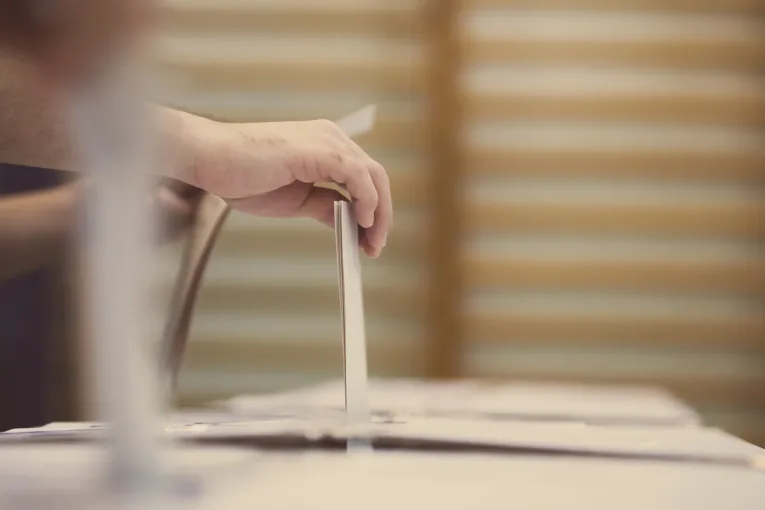
OAKLAND, CA— When media outlets reported last week on the results of the California Ballot, the Urban Peace Movement (UPM) released a statement about the results of Oakland’s Measure NN and California’s Prop. 36, which both passed with more than a reported 70 percent in favor.
There is a concern, especially from UPM, that Measure NN and Prop. 36 will offset changes of increased safety and resources that the respective ballots set to accomplish.
“By passing Measure NN, Oakland voters affirmed their commitment to building a city where community-based organizations like UPM can continue providing essential violence prevention and trauma healing support to our most vulnerable residents,” read the UPM statement.
UPM emphasized, “all deserved to feel safe” and that “know that the safest communities are the most resourced communities,” but was “deeply disheartened” by Prop. 36’s passage, as it presented a “significant setback to meaningful safety solutions.”
CBS News reported that Measure NN was an “increase and extension of an existing parcel tax for police and fire services,” known as Measure Z, for another nine years, which was first passed in 2014 and was to expire at the end of this year.
According to a city auditor featured on CBS, under Measure NN, parcel taxes on single-family homes will increase from $133.45 to $198, taxes on multi-family homes will increase from $91.17 per unit to $132, the tax multiplier on non-residential properties will increase from $68.35 to $198, and the tax on commercial parking will increase from 8.5 percent to 10 percent.
“If the city fails to budget for the 700 officers” as the new minimum staffing level “it would be prohibited from collecting the parking and parcel tax for that parcel year,” according to news. The city is prohibited from “laying off officers if the layoffs drop the total number of officers below 800” and firefighters below 480.
While opponents against Measure NN claim it “doesn’t have enough protections to ensure taxes will be spent as intended,” many supporters say that the generated annual $47.4 million will help “improve 911 response times, add more community police officers and invest in anti-violence programs” along with “job training, mental health services and high school graduation assistance.”
However, communities are more divided on the result of Prop. 36’s passing, which will reverse Prop. 47’s reduction of certain felonies of drug crimes and shoplifting to misdemeanors using reclassification. With reclassification, crimes like repeated shoplifting under $950 originally carried a “much lighter sentence.”
Prop. 36’s proposal, according to the Legislative Analyst’s Office, will make three “key changes.”
The proposition will increase punishment for theft and drug crimes, create “a new treatment-focused court process for some drug possession crimes, and will require courts to “warn people convicted of selling or providing illegal drugs to others that they can be charged with murder if they keep doing so and someone dies.”
UPM actively opposed Prop. 36’s passage, arguing it was “funded by powerful police associations and major corporations such as Target, Walmart and Home Depot” to “profit off incarceration rather than prioritize true community safety.”
Other opponents of Prop. 36 included Gov. Gavin Newsom, who stated the measure would “further crowd the jail system and disproportionately affect communities of color,” according to ABC7 News.
The CURB Coalition, which advocates reducing prison spending, also released a statement on Nov. 6 condemning Prop. 36 as “a setback” and “misguided attempt to revive the failed war on drugs.”
Many voters in San Francisco, however, explained to ABC7 their perspectives on their support for Prop. 36, citing issues of safety that “plagued the Bay Area and the state in recent years,” although the SFPD reported overall crime down 30.6 percent compared to November 2023.
ABC7 also highlighted how the drop in crime since last year wasn’t “enough” for the voters and they wanted the start of a “safer state.”
Cecilia Orellana, whose family experienced a car-break in, stated that “right now, the city is having an outcry because they want some change and help.”
“Existing at the mercy of criminals was very disappointing, very disheartening and I guess we had to hit rock bottom before, finally, people woke up and realized, it’s time to take a different turn,” said Arkady Itkin, another voter in favor of Prop. 36.
Former San Francisco Mayor Willie Brown summed up community sentiment, noting, “They were really looking for relief from so many people allegedly committing, redefined, petty crimes and being able to get away with it.”
UPM’s released statement, on the other hand, argued that the “regressive measure” will “incarcerate more of our people, strip over $100 million a year from safety and care programs, and push us backward into failed War on Drugs-era policies.”
“To truly address crime, addiction, and poverty, we must move beyond failed punitive approaches,” stated UPM Communications Director Kyung Jin Lee.
Lee added, “We will continue to call for increased investment in crime prevention, access to drug treatment, mental health services, good-paying jobs, affordable housing, and poverty alleviation.”
She argued these “proven, short and long term solutions,” not Prop. 36, “are what truly heal and protect our communities” and also address the voters’ safety concerns.
Lee close, “After decades of fighting to undo the damage caused by the War on Drugs and tough-on-crime policies we will continue to build with our community and partners for an Oakland and California that heals instead of hurts, rehabilitates instead of punishes, and invests in people—not corporations or institutions that benefit from locking our communities behind bars.”